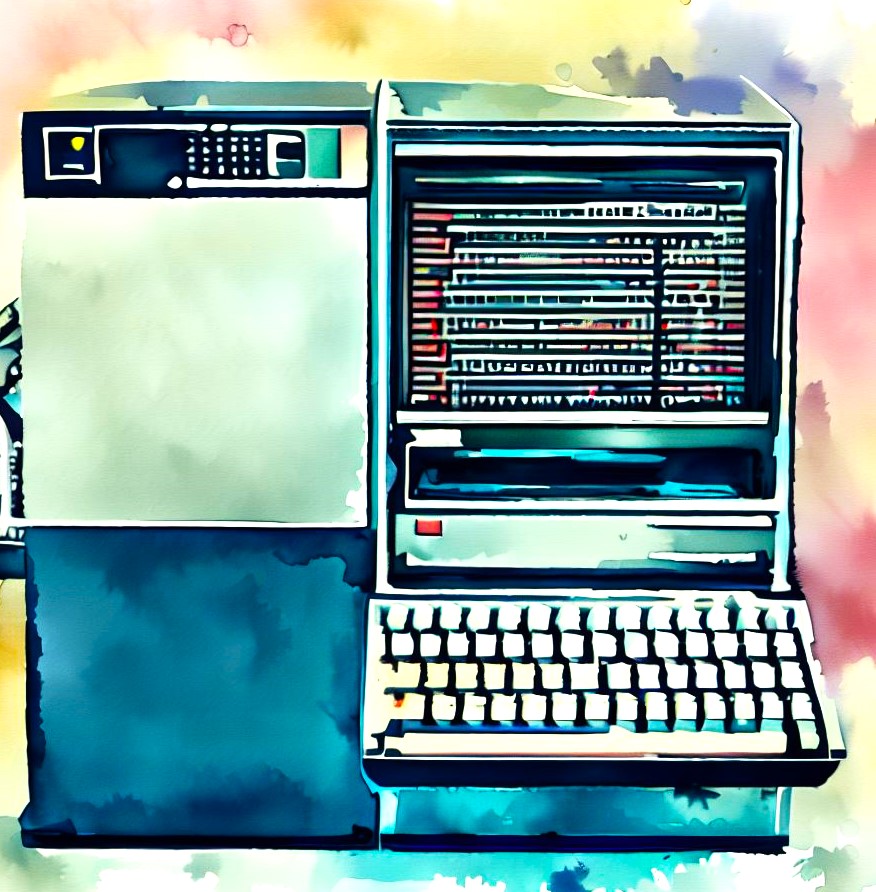Mark Twain – 1835 – 1910


The origins of the internet can be traced back to the 1950s, when the Cold War between the U.S. and the Soviet Union created a need for a reliable and resilient communication system that could survive a nuclear attack.
The idea of a universal network that could connect different computers and users was developed by J. C. R. Licklider at the U.S. Department of Defence’s Advanced Research Projects Agency (ARPA) in the early 1960s.

The first computer network that used packet switching, a technique that breaks data into small blocks and sends them across different routes, was proposed by Paul Baran at the RAND Corporation in 1964, and independently by Donald Davies at the UK’s National Physical Laboratory (NPL) in 1965.
The first operational packet-switched network was the ARPANET, which was launched by ARPA in 1969 with four nodes at UCLA, Stanford, UCSB, and Utah. The ARPANET was designed to allow researchers to share computing resources and data across long distances.
The ARPANET adopted the TCP/IP protocol, which was developed by Bob Kahn and Vint Cerf in the 1970s, and enabled different networks to communicate with each other using a common set of rules. This led to the emergence of the internet as a network of networks.
The Domain Name System (DNS), which assigns human-readable names to numerical IP addresses, was introduced in 1983 by Paul Mockapetris and Jon Postel. This made it easier for users to access websites and services on the internet.
The first email service on the internet was developed by Ray Tomlinson in 1971, who also introduced the use of the ‘@’ symbol to separate the user name from the host name. Email became one of the most popular applications of the internet.

The World Wide Web, which is a system of interlinked documents and multimedia that can be accessed through a web browser, was invented by Tim Berners-Lee at CERN in 1989. Berners-Lee also created the first web server, web browser, and web page.
The first graphical web browser that popularized the use of the web was Mosaic, which was developed by Marc Andreessen and his team at NCSA in 1993. Mosaic later evolved into Netscape Navigator, which competed with Microsoft’s Internet Explorer in the browser wars.
The growth of the internet in the 1990s and early 2000s was driven by various factors, such as the development of home computers, broadband connections, search engines, online platforms, ecommerce, social media, and mobile devices.
The internet has revolutionized many aspects of human society, such as communication, education, entertainment, business, politics, culture, and science.
It has also raised various challenges and issues, such as security, privacy, censorship, digital divide, net neutrality, cybercrime, and cyberwarfare.
E-commerce conglomerate Amazon announced on Monday 25th September 2023 that it will invest up to $4 billion in artificial intelligence (AI) firm Anthropic, a rival to ChatGPT developer OpenAI, and take a minority ownership position in the company.
The move further enforces Amazon’s aggressive AI push as it aims to keep pace with rivals such as Microsoft and Alphabet’s Google.
The two firms reportedly said that they are forming a strategic collaboration to advance generative AI, with the startup selecting Amazon Web Services as its primary cloud provider.
The reasoning is that AI is driving a fear of missing out (FOMO). We could very well be experiencing the fourth industrial revolution right now, and it is AI-driven. Strategically, companies can’t just sit around and wait. There’s a window where if they don’t join in or realise the potential and grab the opportunity, they’ll miss out.
Three of the biggest initial public offerings (IPO) in the tech’ sector in nearly two years raised some $6 billion collectively in less than a week. Nvidia has attracted much attention with the AI driven interest it has created recently.
While a handful of tech IPOs and one big acquisition wouldn’t have been much cause for celebration in previous years, they are a welcome return after the drought of pandemic-era hit investment.
The IPO market for tech was effectively shut down until Arm Holdings, Instacart and Klaviyo opened the investors door again. Merger activity such as that driven by Microsoft Corp., OpenAI ChatGPT and Activision Blizzard Inc. is helping to lift up the appetitie for investment again. And it’s pretty much AI induced.
Some analysts suggest there is $3 trillion sitting on the sidelines ready to invest, mostly held by Big Tech and private equity companies. The fascination with artificial intelligence (AI) and fear of missing out (FOMO) will create massive AI led tech investing opportunities. Everyone will want a slice of this cake.
This could very well be the biggest transformational spending wave that we’ve seen in years and certainly since the internet arrived in 1995.
Just look out for that ‘bubble’ again – it will pop! But much money will be made before that happens and then again after.